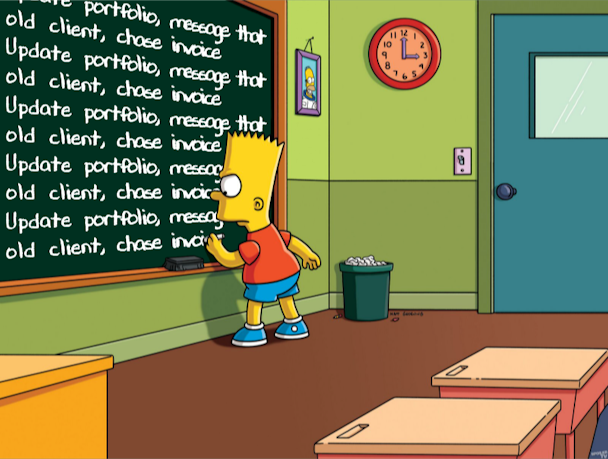A freelance survival guide: top tips for enduring the cost of living crisis in adland
Experts from The Dots, Common People and more offer advice to help freelancers survive difficult times ahead.

What you need to know if you're a freelancer right now/ Image via Ranzey.com
Adland’s freelancers face a turbulent period as the cost of living crisis hits. Following on from our exploration of the state of freelancing, we ask freelancers, recruiters and support networks from across the industry their top tips on everything from fees to networking.
Pip Jamieson, founder and chief executive officer of The Dots
Start building networks outside of your existing ones – there are so many opportunities out there. Start becoming part of new digital networks or offline ones and find opportunities to build new relationships in those spaces. It will be a great way to insulate yourself from any shockwaves that happen.
Advertisement
Pavan Riyat-Ward, managing director of We Are The Allies
I think where freelancers often fall down is that they’re so busy freelancing they forget to market themselves.
Take a day or two out to work on your personal portfolio and make sure it’s great. And don’t just show the sexy stuff. If you can do a great PowerPoint design, put that in because that could be where an agency picks you up for three days’ work when you’ve got nothing else on.
Advertisement
Matthew Knight, chief freelance officer at Leapers
Our advice is pretty simple: don’t do it alone. Working for yourself doesn’t have to mean working by yourself. There are a great number of self-employment communities that help connect freelancers together, share wisdom and advice, and provide needed peer support as we all continue through a period of uncertainty. There are lists of communities at www.leapers.co.
And our advice for employers: signpost to support. Make sure your freelancers know where they can access good quality advice and resources. 66% of freelancers don’t know where to find support for their wellbeing. Let’s close that gap. Beyond that, take some basic steps to build stronger relationships with your freelancers as a core part of your total workforce, not just a resource.
Dan Salkey, co-founder and challenger brand strategist at Small World
As a freelancer, you’re basically a mini business. Businesses need a few things to grow, not least effective marketing, a skilled workforce and well thought out growth plan. You need to approach being freelance the same way, especially if we’re heading into hard times and word-of-mouth work becomes harder to find.
Train yourself up wherever possible, take courses, read books and connect with thought leaders you love. You’ll be surprised how many people are more than willing to be a mentor – they may even pass you work if they like you.
Most importantly, don’t just think about the next job think about the next five. If you want more work from top agencies, create a list and think about how you’re going to cultivate relationships with their heads of department. If you want to work with certain brands, do the same for them.
Build products, not rates. Day rates allow your clients to commoditize your time. That in turn makes it harder for you to raise prices on a regular basis.
Products or productized services allow you to charge based on value. If you’re a designer, have a rebranding package. If you’re an editor, have a social content monthly editing package.
Finally, keep your friends close and agencies closer. Agencies will be one of your main sources of income. You’ll probably balance a part-time stint at an agency with other projects directly working with brands – use them as a shortcut to getting the kind of work you’d be proud of. Identify agencies you want to work with by the type of clients they work with, their output, but also their positioning.
Advertisement
Tom Armstrong, co-founder of Common People and head of creative content at Hamilton and Hare
Work on your public profile. Work on your portfolio and keep your LinkedIn active, because they will bring in work. In your downtime, maintain your relationships. Check-in on people and sell yourself a bit.
Going into this cost of living crisis, you might not have a lot of spare cash but you might have some spare time you can put to good use; message that old client, because nine times out of 10 that’s where your work comes from.
On the agency side, the issue remains that a lot of these big companies have accounts departments that sit far away from the people doing the commissioning. If there’s an issue with an invoice, it doesn’t get solved and freelancers don’t get paid.
It’s normal for freelancers to wait for three, four or even five months to get paid and I can’t think of another industry where that would be acceptable. Especially at the moment, during this crisis when margins are tight – I can’t imagine how stressful that must be.
There’s absolutely got to be more pressure on the industry for companies to sort their payment systems out. It’s not enough to say your accounts department is small or that it’s not good enough. If you know it’s not good enough, do something about it!
And of course, you can always come to Common People. If you’re from a working-class background and you don’t have friends or family in the industry, then you might not have someone to turn to and ask: ‘Is this normal? How should I approach this?’ Whereas, in Common People, we’ve seen that happen time and time again. A lot of big problems have been solved by people coming together and helping each other connect the dots – it’s a network for people who didn’t have one before.
For more stories like this, sign up for The Drum’s Work and Wellbeing briefing here.
